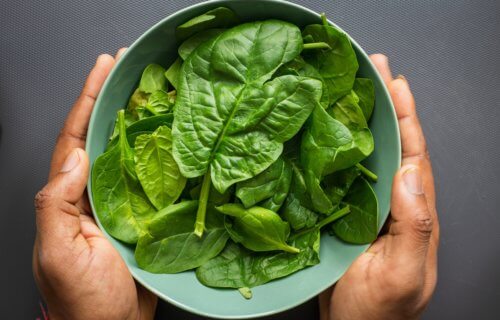WASHINGTON — From Popeye the Sailor Man to modern day nutritionists, the verdict is unanimous: spinach is great for you. The green leafy superfood contains all sorts of nutrients and antioxidants the body needs. A new study finds spinach isn’t just good for your health, it might help save the planet too. Researchers say the vegetable is actually a better catalyst for batteries and fuel cells than precious metals.
Researchers at American University reveal carbon-based nanosheets made from spinach equals or outperforms traditional platinum-based catalysts. These nanosheets help to accelerate an oxygen reduction reaction in fuel cells and metal-air batteries. This produces enough current to create energy and power anything from electric cars to military equipment.
The study says spinach, which is rich in iron and nitrogen, is an inexpensive and natural resource which can replace more toxic options.
“This work suggests that sustainable catalysts can be made for an oxygen reduction reaction from natural resources,” says AU chemistry professor Shouzhong Zou in a university release.
Research is first to show this new potential for spinach
To test this theory, Zou and his team had to go through the process of turning spinach into a carbon-based nanosheet. The vegetable was washed, juiced, and then freeze-dried. After this, researchers manually grinded the spinach into a fine powder using a mortar and pestle. Study authors add they also used nitrogen “doping” to improve the performance of these catalysts.
These sheets are like pieces of paper, but on the nanometer scale, which are a thousand times thinner than hair. Researchers say commercial battery catalysts tend to lose their potency over time, on top of being more expensive.
“The method we tested can produce highly active, carbon-based catalysts from spinach, which is a renewable biomass. In fact, we believe it outperforms commercial platinum catalysts in both activity and stability. The catalysts are potentially applicable in hydrogen fuel cells and metal-air batteries,” Zou adds.
The professor’s work is the first to show spinach can help create an oxygen reduction reaction. Study authors add that the vegetable is great to work with because it survives at low temperatures and is easy to grow.
The next step in the research will be to move the spinach from lab simulations to actual devices, like a hydrogen fuel cell.
The study appears in the journal ACS Omega.
Like studies? Follow us on Facebook!
